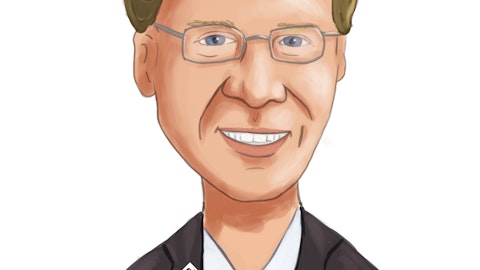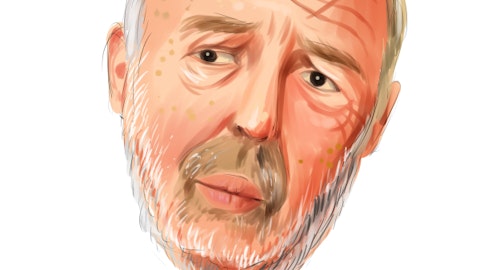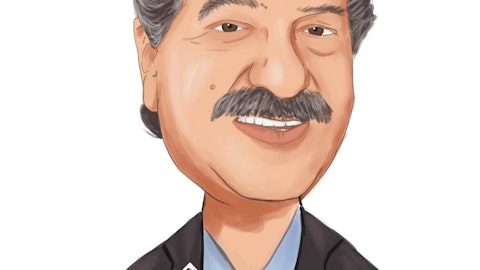Those are the expenses, I’m talking about and that prepares us not only for this Marriott hundreds of thousands of rooms going live also for the rest of the business and also for possibly other large operators looking at us like you mentioned. It prepares the company to go to an entirely different level of a cloud SaaS-based software company. For the second part of your question, George that has got nothing to do with selling more to Marriott. Like we are saying, we were selected for luxury, premium, select service in U.S. and Canada and our entire focus is on that. And it’s a big partnership, it’s a huge partnership. So far there seems to be an excellent culture fit of the two companies working well together. Our focus is on executing what we have been selected for well, what that leads to in the future, we have no idea and that is not our concern now.
George Sutton: All right. Congrats on the execution.
Ramesh Srinivasan: Thank you, Josh.
Operator: Thank you. One moment for questions. Our next question comes from Nehal Chokshi with Northland. You may proceed.
Nehal Chokshi: Yes, thank you, and congrats on the strong quarter and a Marriott deal. That’s incredible. With respect to Marriott, are you already seeing any halo effect from the validation that this one should bring?
Ramesh Srinivasan: Yes, Nehal. I mean nothing transformational, but the simple fact that we are getting included in PMS-RFPs now, that possibly before the announcement, we may not have been included in those RFPs because now we have to be taken seriously in the PMS space as well, when the world’s largest and most innovative hospitality operators select you, you asked the question, how can we not include them when we do a PMS election. So we are getting those kinds of inquiries that are more than it was before.
Nehal Chokshi: So how does that going to impact your OpEx spend, because presumably, that’s going to, materially, increase your opening pipeline here. You only had 3% Q-over-Q increase on your OpEx here in the December quarter, albeit, your sales and marketing was up 11% Q-over-Q. So just how should we think about that from that perspective then?
Dave Wood: Hey Nehal. We don’t expect a much of increase in our sales and marketing spend. If you’re looking at it as a percentage of revenue. I mean, the way to think about the businesses, we’ll stay-in the 10% to 12%. We don’t think the halo effect through the increased bookings is going to change that. I mean, obviously, the revenue number is going up, so the absolute dollars will go up, but we’ll keep sales and marketing in the 10% to 12% range. So no major increase there.
Nehal Chokshi: Do you worry that you might be leaving demand on the table by not hiring more impressively then?
Dave Wood: Yes, I mean. Good. No, one thing just to keep in mind that we talked about. I mean, with the expansion of sales and marketing this year, going from 9% up to 11% to 12%, we still have a lot of capacity level in our sales team, we haven’t hit any kind of capacity where we feel more than incremental hiring is necessary at this point.
Jessica Hennessy: But sales and marketing, Nehal, it’s going to continue to expand and — but as a percentage of revenue, we think we’ll stay-in that range for now. That’s how it seems like. And I don’t think we are leaving much demand on the table, Nehal. Because we are constantly watching, right. The capacity level and how much the current sales teams are contributing and if we need to expand that, if it is very clear that we need to expand that we will not hesitate to do that, Nehal.




